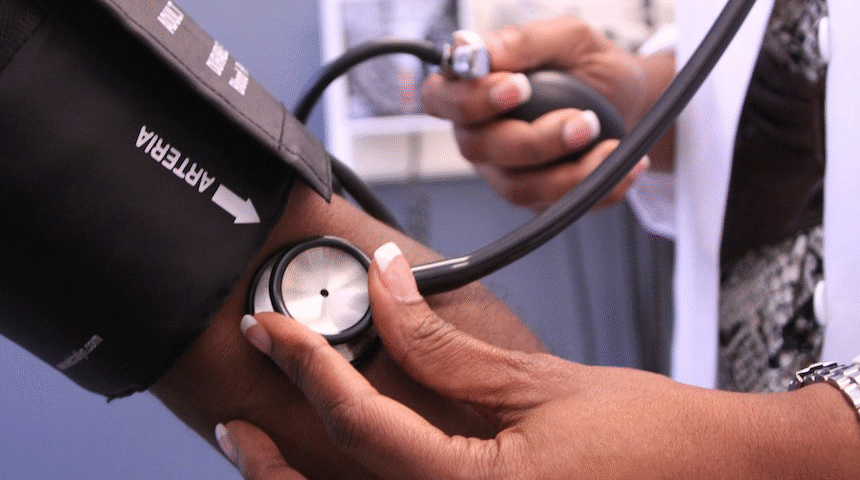
When to See a Cardiologist for Chest Pain or Palpitations
September 26, 2025
Chiropractic Care Benefits for Neck and Shoulder Pain
September 26, 2025
High blood pressure, also known as hypertension, is one of the most common health conditions affecting people worldwide. According to the World Health Organization (WHO), nearly 1.3 billion people live with high blood pressure, and only a fraction of them manage it effectively. When left untreated, hypertension can damage vital organs like the heart, brain, kidneys, and eyes, often leading to serious complications such as heart attacks, strokes, and chronic kidney disease.
Cardiologists—doctors who specialize in heart health—play a vital role in treating patients with high blood pressure. Their treatment approaches are not limited to prescribing pills but involve lifestyle adjustments, monitoring, and in some cases, advanced therapies. In this article, we will explore cardiology treatments for high blood pressure patients, breaking down how cardiologists help manage this condition in practical and human-centered ways.
Understanding High Blood Pressure
Before discussing treatment, it’s important to understand what high blood pressure really means.
- Normal blood pressure: less than 120/80 mmHg
- Elevated blood pressure: 120–129 / less than 80 mmHg
- Stage 1 hypertension: 130–139 / 80–89 mmHg
- Stage 2 hypertension: 140 or higher / 90 or higher mmHg
When blood pressure consistently remains high, the heart must work harder to pump blood throughout the body. Over time, this extra strain can thicken the heart muscle, damage arteries, and reduce blood flow to essential organs.
Role of Cardiologists in Hypertension Care
A cardiologist does much more than just measure blood pressure. Their role is holistic and involves:
- Assessing risk factors – family history, age, obesity, lifestyle, and existing heart disease.
- Identifying causes – sometimes high blood pressure results from conditions like kidney problems, hormonal imbalance, or sleep apnea.
- Creating treatment plans – tailored to each patient’s health profile and lifestyle.
- Preventing complications – such as heart failure, heart attacks, or strokes.
This patient-centered approach ensures treatment is effective and sustainable.
Cardiology Treatments for High Blood Pressure Patients
1. Lifestyle Modifications
For many patients, the first treatment recommended by cardiologists involves lifestyle changes. These adjustments can often lower blood pressure naturally and may even reduce the need for medications.
- Dietary changes: Following the DASH (Dietary Approaches to Stop Hypertension) diet, which emphasizes fruits, vegetables, lean proteins, and low salt intake.
- Physical activity: At least 150 minutes of moderate exercise per week, such as walking, cycling, or swimming.
- Weight management: Even losing 5–10% of body weight can significantly lower blood pressure.
- Limiting alcohol and quitting smoking: Both can damage blood vessels and raise pressure.
- Stress management: Techniques such as meditation, yoga, and deep breathing exercises.
2. Medications (Pharmacological Treatment)
When lifestyle changes alone are not enough, cardiologists prescribe medications. The type of medication depends on the patient’s age, health condition, and other diseases.
Common categories of blood pressure medications:
| Medication Type | How It Works | Example Drugs |
|---|---|---|
| Diuretics | Help kidneys remove excess salt and water | Hydrochlorothiazide, Furosemide |
| ACE inhibitors | Relax blood vessels by blocking hormones | Lisinopril, Enalapril |
| ARBs (Angiotensin II receptor blockers) | Prevent tightening of blood vessels | Losartan, Valsartan |
| Calcium channel blockers | Relax heart muscles and arteries | Amlodipine, Diltiazem |
| Beta-blockers | Reduce heart rate and workload | Metoprolol, Atenolol |
Often, patients may need a combination of two or more medications for effective blood pressure control.
3. Monitoring and Regular Checkups
Cardiology care doesn’t stop at prescribing drugs. Patients must have regular follow-ups to check how well their blood pressure is responding. Cardiologists may adjust medicines, monitor side effects, and order tests such as:
- Echocardiograms (heart ultrasound)
- Blood tests for kidney function
- Electrocardiograms (ECG) to assess heart rhythm
4. Advanced Interventions (For Resistant Hypertension)
Some patients suffer from resistant hypertension, meaning their blood pressure remains high despite multiple medications and lifestyle changes. In such cases, cardiologists may consider advanced treatments:
- Renal denervation: A minimally invasive procedure that targets nerves in the kidney responsible for raising blood pressure.
- Baroreceptor activation therapy: An implantable device that stimulates nerves in the neck to regulate blood pressure.
Though not commonly required, these options can be life-changing for patients who don’t respond to traditional methods.
5. Patient Education and Support
A vital part of cardiology treatment is educating patients about their condition. Cardiologists emphasize:
- How to monitor blood pressure at home.
- Recognizing warning signs like chest pain, dizziness, or shortness of breath.
- Sticking to treatment even when symptoms are not obvious (since hypertension is often called the “silent killer”).
Support groups, counseling, and regular doctor-patient communication all help patients stay on track.
Importance of Early and Consistent Treatment
Hypertension rarely shows symptoms in its early stages, which is why many people ignore it until complications occur. Cardiologists stress the importance of early diagnosis and consistent management.
If controlled properly, patients can:
- Reduce risk of stroke by up to 40%.
- Lower risk of heart attack by 25%.
- Improve overall quality of life and life expectancy.
Living with High Blood Pressure – A Patient’s Perspective
Managing hypertension is a lifelong journey. It’s not just about taking pills but making conscious choices every day. Patients who follow cardiology advice often report:
- Feeling more energetic after adopting healthier lifestyles.
- Improved sleep quality and reduced stress.
- Confidence in preventing long-term complications.
With proper guidance, living with high blood pressure doesn’t have to mean living in fear.
Conclusion
Cardiology treatments for high blood pressure patients involve a blend of lifestyle changes, medications, regular monitoring, and, in some cases, advanced therapies. Cardiologists focus not only on lowering blood pressure but also on preventing long-term damage to the heart and other organs. The key to success lies in early diagnosis, patient education, and consistent follow-up care. With the right approach, hypertension can be effectively managed, helping patients live longer, healthier lives.
FAQs about Cardiology Treatments for High Blood Pressure
1. Can high blood pressure be cured permanently?
No, hypertension cannot usually be cured, but it can be effectively managed with the right lifestyle choices and medications.
2. How often should I visit a cardiologist if I have high blood pressure?
Most patients should see their cardiologist every 3–6 months, but visits may be more frequent if medications are being adjusted.
3. Are blood pressure medications safe to take long-term?
Yes. When prescribed correctly and monitored regularly, blood pressure medications are safe and help prevent serious complications.
4. What foods should I avoid if I have high blood pressure?
Limit salty foods, processed snacks, red meat, fried foods, and high-sugar beverages. Instead, focus on fresh fruits, vegetables, whole grains, and lean proteins.
5. Can stress alone cause high blood pressure?
Stress can temporarily raise blood pressure, but chronic stress combined with unhealthy habits (like poor diet and lack of sleep) contributes significantly to long-term hypertension.

